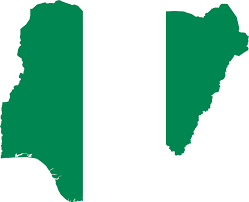The Nigeria Police Force plays a crucial role in maintaining law and order and ensuring public safety. The structure of this organization is meticulously outlined in the 1999 Constitution, specifically in sections 214 (2)(a) and 215(2). These sections lay the foundation for the Force’s organizational framework and emphasize adhering to provisions prescribed by an Act of the National Assembly.
Chain of Command in Nigeria Police Force
The chain of command within the Nigeria Police Force is clearly defined, with each rank holding specific responsibilities and authority.
Deputy Inspector-General
Section 7 (1) of the Police Act establishes the Deputy Inspector-General of Police as the second-in-command, acting on behalf of the Inspector-General in their absence. Multiple Deputy Inspectors-General can be appointed as deemed appropriate by the Nigeria Police Council.
Assistant Inspector-General
Sections 5 and 8 of the Police Act outline the role of the Assistant Inspector-General of Police, who assumes command in the absence of both the Inspector-General and Deputy Inspector-General.
Commissioner of Police
Section 5 of the Police Act, in conjunction with section 215 (2) of the Constitution, establishes the office and rank of the Commissioner of Police. They are responsible for overseeing the contingents of the Police Force stationed in each state while remaining subject to the authority of the Inspector-General or their acting representative.
Command (Authority) Structure Hierarchy:
The Command (Authority) Structure of the Nigeria Police can be presented in the following hierarchical order:
- Inspector-General of Police
- Deputy Inspector-General of Police
- Assistant Inspector-General of Police
- Commissioner of Police (In-charge of contingents in a state)
- Deputy Commissioner of Police
- Assistant Commissioner of Police
- Chief Superintendent of Police
- Superintendent of Police
- Deputy Superintendent of Police
- Assistant Superintendent of Police
- Inspector of Police
- Sergeant Major
- Sergeant
- Corporal
- Constable
Regulation 273 of the Police Regulation, Cap 359 laws of the Federal Republic of Nigeria, 1990 further reinforces this hierarchical structure.
Departments in Nigeria Police Force
The Nigeria Police Force is structured into seven (7) main departments, labeled from ‘A’ to ‘G.’ Each department plays a vital role in ensuring the smooth functioning of the Force and in addressing specific aspects of law enforcement and security. Let’s explore these departments in detail:
1. ‘A’ Department: Administration
The ‘A’ Department is responsible for the overall administration and coordination of the various departments within the Nigeria Police Force. It oversees policies, procedures, and regulations governing the Force’s operations. This department also handles issues related to discipline, welfare schemes, and budgeting.
2. ‘B’ Department: Operations
The ‘B’ Department is at the forefront of the Nigeria Police Force’s operational activities. It is responsible for planning and organizing internal security measures, coordinating crime prevention policies, and managing tactical operations for crime control and prevention. Additionally, this department oversees force communication networks and formulates policies for traffic control.
3. ‘C’ Department: Logistics and Supply
The ‘C’ Department plays a crucial role in ensuring the Nigeria Police Force has the necessary resources and equipment to carry out its duties effectively. This department is responsible for procurement, allocation, and distribution of vehicles, arms, ammunition, technology, and other essential equipment. It also oversees the construction and maintenance of police buildings and barracks.
4. ‘D’ Department: Investigation and Intelligence
The ‘D’ Department is dedicated to criminal investigations, intelligence gathering, and crime prevention. It encompasses various units such as the Interpol, Narcotics, Forensics, Crime Records, and Criminal Intelligence. This department plays a vital role in solving complex crimes and providing critical insights for law enforcement operations.
5. ‘E’ Department: Training and Command
The ‘E’ Department is responsible for formulating and implementing training policies for the Nigeria Police Force. It oversees the activities of police colleges and training institutions, ensuring a uniform standard of training across all facilities. This department also focuses on staff development and research to keep pace with modern policing techniques and best practices.
6. ‘F’ Department: Research, Planning, and Inspectorate
The ‘F’ Department is dedicated to research, planning, and inspectorate functions within the Nigeria Police Force. It conducts studies and analyses to inform decision-making processes and develops strategies for improving the Force’s operations. Additionally, this department oversees the management of information systems and organizational methods.
7. ‘G’ Department: Information and Communication Technology (ICT)
The ‘G’ Department plays a crucial role in leveraging technology to enhance the Nigeria Police Force’s efficiency and effectiveness. It is responsible for developing and implementing ICT policies, managing electronic databases and communication systems, and introducing innovative technological solutions to support modern policing efforts.
